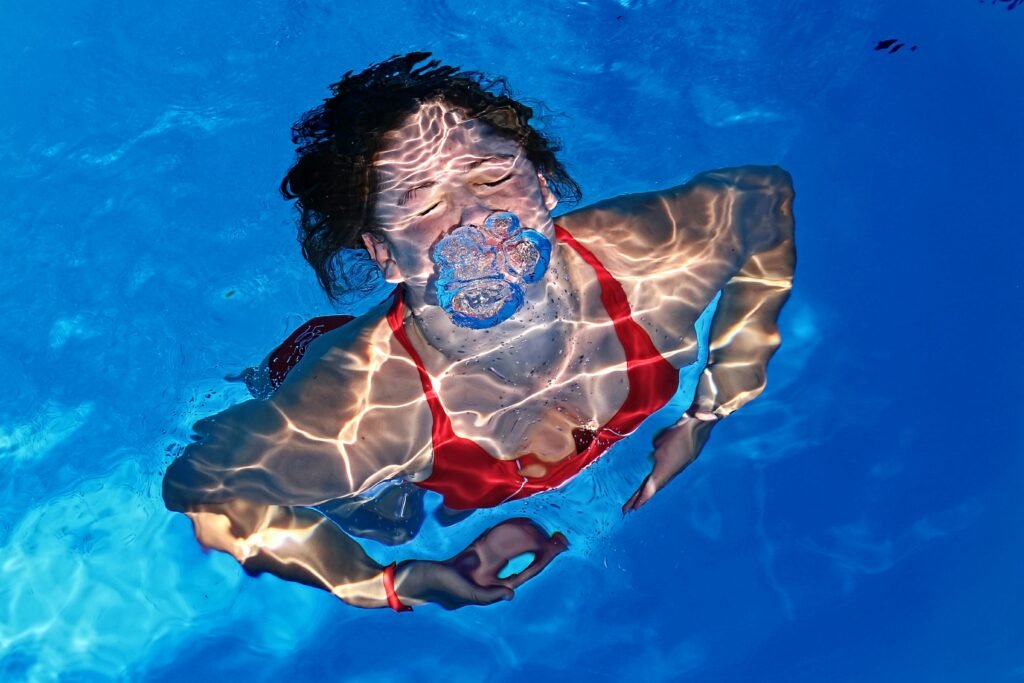
By now, you probably know my love for analogies — so here comes another one, straight from the gut.
Imagine this: a vast sea, full of people, all drowning.
Some are thrashing around, desperate to stay afloat, clinging to anything or anyone that will keep them from going under. Others have given up entirely — no fight left in them, slowly sinking to the bottom with their eyes open, watching the light fade. And then there are the ones who are exhausted but still treading, heads barely above water. They’re not fighting to reach the shore — they’re just trying to survive one more wave.
But scattered throughout the sea, there are people with the heart of a lion. Fighters. Visionaries. Survivors.
Now picture this: in that sea, people float in clusters. Your cluster matters. Because if a fighter ends up in the wrong group — their energy gets rejected. Their solutions ignored. Their obsession with reaching land becomes a nuisance. The others can’t understand why they’re not just grateful to have their head above water for a few more hours.
But if that fighter finds the right group — oh, it’s electric.
His fight becomes contagious. Suddenly, heads turn. Brains engage. Plans are made. Even if only one person reaches the shore, the group knows — they’ll come back with a boat.
This is the power of proximity. This is the difference the right environment makes.
The $300 Wake-Up Call
One day, I came home and found my housemate sitting in the dark, typing furiously on her phone. The energy was heavy. She looked up and said something that froze me in place:
“I needed $300. I scrolled through my contacts, and realized not one person on my list could help. Not one had that kind of money just sitting in their account. I’m deleting everyone.”
It shook me.
Not because of the money — but because of the realization. The environment. The lack of possibility. She was swimming in a sea where nobody had a boat.
Stop Arguing with Anchors
I once had lunch with a colleague and brought up a businessman worth $15 million. He scoffed and said, “That’s not rich.”
So, I asked, “Do you have $100,000?”
He went silent.
Too many people are trapped in relationships where they spend their energy arguing with anchors — debating people who can’t even swim, about how fast the boat should be.
Wake up.
Stop calling it loyalty when it’s limitation. Stop calling it “having a good heart” when it’s you drowning yourself to keep others comfortable in shallow water.
🌊 The Sea of Despair — Journaling Prompts & Lessons
Theme: Where am I in the sea? And who’s swimming beside me?
💭 Reflective Journaling Prompts:
- Where am I in the sea right now?
- Am I sinking, surviving, floating, or fighting?
- What’s draining my energy the most?
- What kind of people are in my immediate environment?
- Are they trying to reach the shore, or just trying to survive a little longer?
- Do they fuel me or deplete me?
- Who do I go to when I’m in need?
- Do I have people who can support me emotionally, financially, intellectually?
- If not — why? What have I tolerated for too long?
- What am I holding onto that’s keeping me in this sea?
- A relationship, a belief, a job, an identity?
- If I had to save just one person in my circle, who would it be — and why?
- What does that say about the kind of energy I value?
- Have I ever been the “fighter” in the wrong group?
- What happened? Did I stay too long?
- How did that experience affect my fire, my dreams, my confidence?
- What would my “shore” look like?
- Define it in detail — emotional, financial, mental freedom.
- What does life feel like on that land?
✨ Lessons to Highlight:
- Proximity is power.
Who you’re surrounded by is either extending your life or speeding your spiritual death. - Not everyone wants to reach the shore.
Survival mode is addictive — and for many, dreaming feels dangerous. Don’t confuse stillness with peace. - Being the strongest swimmer in the wrong group will drown you faster.
Your vision will be seen as a threat when others are addicted to comfort. - You don’t owe your presence to people who are committed to their own stagnation.
Love them. Pray for them. But don’t sink for them. - **Rescue starts with you.
You don’t need permission to fight for your life.
🧭 Integration Practice:
Write a letter to your future self from the version of you who made it to the shore.
Start with:
“I know right now everything feels heavy, but I promise you this — you don’t drown here…”
Let that letter be a guide — something you can return to when the waves feel too strong.
The Truth? Some People Are Not Meant to Come with You
If your circle isn’t challenging you to swim harder, think deeper, reach further — it’s not a circle, it’s a cage. You will never reach the shore with people who are addicted to floating.
Save yourself first. Reach the shore. Then build the boat.
But don’t spend your life arguing with people who think staying afloat is the same as living.
Salima
Just me thinking out loud over here
